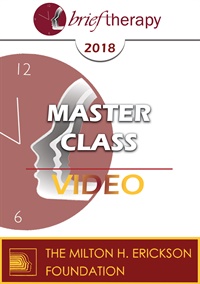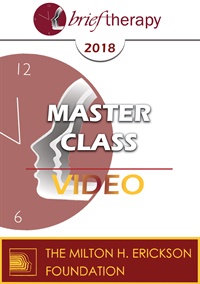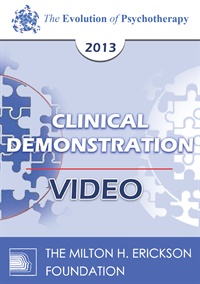- Average Rating:
- Not yet rated
- Topic Areas:
- Master Classes | Hypnosis | Psychotherapy | Ericksonian Hypnosis and Therapy Techniques | Strategic Therapy | Ericksonian Psychotherapy | Experiential Therapy | Hypnotherapy
- Categories:
- Brief Therapy Conference | Brief Therapy Conference 2018
- Faculty:
- Michael Yapko, PhD | Jeffrey Zeig, PhD
- Course Levels:
- Master Degree or Higher in Health-Related Field
- Duration:
- 2:56:13
- Format:
- Audio and Video
- Original Program Date:
- Dec 10, 2018
- Short Description:
- In this interactive master class, live demonstrations show how hypnosis and experiential methods can help clients transform fear into resilience. One volunteer confronts a lifelong fear of deep water, discovering a powerful inner resource through imagery of her father’s love. Another works through the emotional aftermath of divorce, learning new ways to disarm old patterns of intimidation. The session highlights how metaphor, experiential sculpting, and hypnotic reframing can unlock unexpected pathways to strength and healing.
- Price:
-
Sale is $29.00
price reduced from Base Price - $59.00
- Average Rating:
- Not yet rated
- Topic Areas:
- Master Classes | Hypnosis | Psychotherapy | Ericksonian Hypnosis and Therapy Techniques | Ericksonian Psychotherapy | Experiential Therapy | Hypnotherapy
- Categories:
- Brief Therapy Conference | Brief Therapy Conference 2018
- Faculty:
- Michael Yapko, PhD | Jeffrey Zeig, PhD
- Course Levels:
- Master Degree or Higher in Health-Related Field
- Duration:
- 2:43:33
- Format:
- Audio and Video
- Original Program Date:
- Dec 10, 2018
- Short Description:
- This session explores how hypnosis and strategic therapy can help clients untangle patterns of avoidance, self-doubt, and family tension. By using affective dissociation, metaphors, and experiential learning, the master class demonstrates how to separate mood from action, strengthen integrity with self, and foster resilience. Participants gain insight into how language, stories, and relational dynamics can be woven into therapy to create lasting change.
- Price:
-
Sale is $29.00
price reduced from Base Price - $59.00
Credit available - Click Here for more information
- Average Rating:
- Not yet rated
- Topic Areas:
- Clinical Demonstrations | Hypnosis | Resources | Experiential Therapy | Suggestion | Brief Therapy
- Categories:
- Brief Therapy Conference | Brief Therapy Conference 2018 | Online Continuing Education
- Faculty:
- Michael Yapko, PhD
- Course Levels:
- Master Degree or Higher in Health-Related Field
- Duration:
- 57:31
- Format:
- Audio and Video
- Original Program Date:
- Dec 08, 2018
- Short Description:
- In this demonstration, hypnosis helps a volunteer struggling with stage fright move from self-doubt to grounded confidence. Through imagery, metaphor, and gentle reframing, the process highlights how shifting focus from fear of judgment to the power of one’s message can unlock presence and ease. Participants witness how hypnosis draws on personal resources and past strengths to dissolve performance anxiety and foster resilience.
- Price:
-
Sale is $29.00
price reduced from Base Price - $59.00
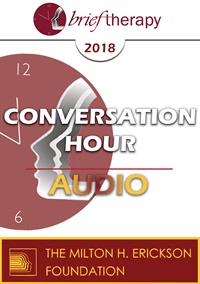
- Average Rating:
- Not yet rated
- Topic Areas:
- Great Conversations | Hypnosis | Mindfulness | Brief Therapy
- Categories:
- Brief Therapy Conference | Brief Therapy Conference 2018
- Faculty:
- Ronald Siegel, PsyD | Michael Yapko, PhD
- Duration:
- 1:00:08
- Format:
- Audio Only
- Original Program Date:
- Dec 08, 2018
- Short Description:
- This wide-ranging dialogue explores the intersections of mindfulness and hypnosis, weaving together clinical stories, research, and experiential insights. From transforming pain perception in brain imaging studies to reshaping rigid self-definitions in therapy, the conversation shows how each practice offers unique yet overlapping ways of fostering flexibility and resilience. Participants hear vivid examples of how language, suggestion, and attention shape identity, affect tolerance, and the capacity for change.
- Price:
- $15.00 - Base Price
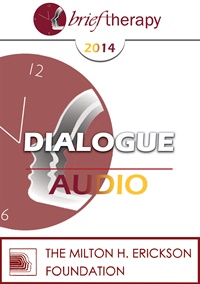
- Average Rating:
- Not yet rated
- Topic Areas:
- Hypnosis | Dialogues | Brief Therapy | Mind-Body
- Categories:
- Brief Therapy Conference | Brief Therapy Conference 2014
- Faculty:
- Michael Yapko, PhD | Ronald Siegel, PsyD
- Duration:
- 1:00:55
- Format:
- Audio Only
- Original Program Date:
- Dec 13, 2014
- Short Description:
- This session examines mindfulness and hypnosis side by side, considering their overlaps and distinctions in clinical practice. Panelists discuss dissociation, suggestion, and attentional focus, exploring how each tradition works with acceptance, transformation, and client responsiveness. Participants gain insight into how mindfulness cultivates metacognitive awareness while hypnosis mobilizes experiential shifts, offering complementary tools for pain management, depression, and the cultivation of resilience.
- Price:
- $15.00 - Base Price
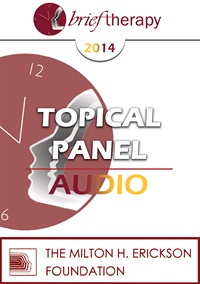
- Average Rating:
- Not yet rated
- Topic Areas:
- Psychotherapy | Topical Panels | Research
- Categories:
- Brief Therapy Conference | Brief Therapy Conference 2014
- Faculty:
- Scott Miller, PhD | Michael Yapko, PhD | Ernest Rossi, PhD
- Duration:
- 1:01:28
- Format:
- Audio Only
- Original Program Date:
- Dec 13, 2014
- Short Description:
- This panel dives into the evolving relationship between research and psychotherapy, confronting issues from antidepressant studies ghostwritten by pharma to landmark trials showing therapist skill outweighs treatment model. Through stories of media influence, policy debates, and clinical realities, participants see how conflicting findings ripple from the lab to the consulting room. The discussion underscores why translating research into meaningful practice—and training therapists to measure and reflect on outcomes—matters more than ever.
- Price:
- $15.00 - Base Price
- Average Rating:
- Not yet rated
- Topic Areas:
- Workshops | Hypnosis | Psychotherapy
- Categories:
- Evolution of Psychotherapy 2013 | Evolution of Psychotherapy
- Faculty:
- Michael Yapko, PhD
- Course Levels:
- Master Degree or Higher in Health-Related Field
- Duration:
- 1:48:06
- Format:
- Audio and Video
- Original Program Date:
- Dec 15, 2013
- Short Description:
- This workshop demonstrates how hypnosis can open possibilities where logic alone falls short. Through live exercises and clinical examples, participants see how suggestion, imagery, and focused attention shift trust, resilience, and even physical sensations like pain. The session illustrates hypnosis as a vehicle for building expectancy, reframing problems, and empowering clients to access resources they didn’t know they had.
- Price:
-
Sale is $29.00
price reduced from Base Price - $59.00
- Average Rating:
- Not yet rated
- Topic Areas:
- Clinical Demonstrations | Hypnosis | Experiential Therapy | Psychotherapy
- Categories:
- Evolution of Psychotherapy | Evolution of Psychotherapy 2013
- Faculty:
- Michael Yapko, PhD
- Course Levels:
- Master Degree or Higher in Health-Related Field
- Duration:
- 1:04:47
- Format:
- Audio and Video
- Original Program Date:
- Dec 13, 2013
- Short Description:
- In this live demonstration, hypnosis becomes a pathway for transforming trust and self-reliance. A volunteer explores her difficulty depending on others, discovering instead the deeper security of trusting her own capacity to cope. Through carefully guided suggestions and experiential shifts, the session shows how reframing expectations of others can foster greater acceptance, resilience, and more ease in relationships.
- Price:
-
Sale is $29.00
price reduced from Base Price - $59.00
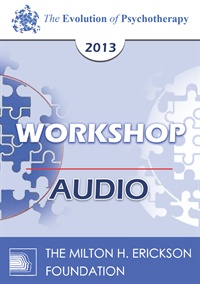
- Average Rating:
- Not yet rated
- Topic Areas:
- Workshops | Psychotherapy | Therapeutic Relationship | Therapist Development
- Categories:
- Evolution of Psychotherapy | Evolution of Psychotherapy 2013
- Faculty:
- Michael Yapko, PhD
- Duration:
- 2 Hours 47 Minutes
- Format:
- Audio Only
- Original Program Date:
- Dec 11, 2013
- Short Description:
- This workshop demonstrates how vague, global thinking can keep clients stuck and how learning to make fine distinctions opens the door to change. Through lively examples, practical exercises, and even stories from elephant training, the session shows how therapists can teach clients concrete skills for decision-making, boundary setting, and emotional regulation. Participants see how specificity and sequencing can transform overwhelm into clarity and action.
- Price:
- $15.00 - Base Price
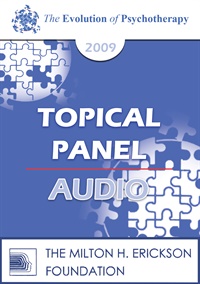
- Average Rating:
- Not yet rated
- Topic Areas:
- Depression | Topical Panels | Psychotherapy
- Categories:
- Evolution of Psychotherapy | Evolution of Psychotherapy 2009
- Faculty:
- Judith Beck, PhD | Francine Shapiro, PhD | Michael Yapko, PhD
- Duration:
- 55 Minutes
- Format:
- Audio Only
- Original Program Date:
- Dec 11, 2009
- Short Description:
- This panel brings depression into focus through real-world cases, from suicidal crises to technology-driven isolation. The conversation shows how different methods—cognitive therapy, EMDR, and experiential strategies—address automatic thoughts, unprocessed memories, and disconnection. Participants see how these approaches converge on helping clients find hope, build coping skills, and strengthen relationships as buffers against depression.
- Price:
- $15.00 - Base Price
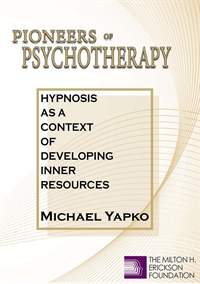
- Average Rating:
- Not yet rated
- Topic Areas:
- Clinical Demonstrations | Hypnosis | Resources
- Bundle(s):
- Pioneers of Psychotherapy Bundle
- Categories:
- Pioneers of Psychotherapy | Evolution of Psychotherapy | Evolution of Psychotherapy 2009
- Faculty:
- Michael Yapko, PhD
- Course Levels:
- Master Degree or Higher in Health-Related Field
- Duration:
- 00:58:00
- Format:
- Audio and Video
- Original Program Date:
- Dec 10, 2009
- Short Description:
- Michael Yapko (2009) works with a volunteer, a medical student, who feels “frozen” to advance professionally. Fearing public speaking and feeling blocked in writing she wants to feel centered and motivated. Yapko uses hypnosis –what he calls, “the original positive psychology”— to free her from feeling stuck and to help her take risks to move forward.
- Price:
- $59.00 - Base Price
Tags: Hypnosis Resources Michael Yapko
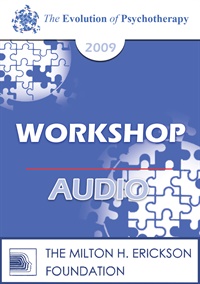
- Average Rating:
- Not yet rated
- Topic Areas:
- Depression | Workshops | Hypnosis | Experiential Therapy | Psychotherapy | Strategic Therapy
- Categories:
- Evolution of Psychotherapy | Evolution of Psychotherapy 2009
- Faculty:
- Michael Yapko, PhD
- Duration:
- 2 Hours 42 Minutes
- Format:
- Audio Only
- Original Program Date:
- Dec 09, 2009
- Short Description:
- This session explores how hypnosis and psychotherapy can offer powerful alternatives to the biomedical model of treating depression. Michael Yapko shows how strengthening relationships, building coping skills, and fostering emotional regulation can create lasting change. Participants learn goal-oriented approaches that emphasize prevention, flexibility, and social connection as essential ingredients in recovery.
- Price:
- $15.00 - Base Price


